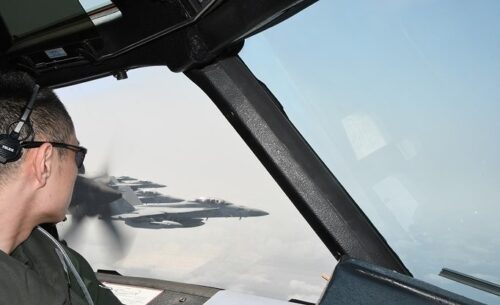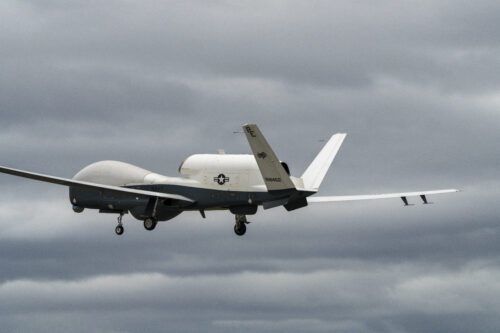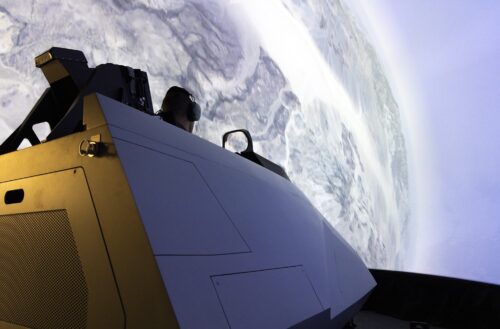A South Korean Navy P-3 maritime patrol aircraft crashed in a mountainous area near Pohang on May 29, with four crew members aboard the aircraft at the time of the incident.
Category: Navy
Japan to conduct first domestic anti-ship missile test in Hokkaido
Japan’s Ground Self-Defense Force (GSDF) will conduct its first domestic drill involving long-range surface-to-ship missiles between Jun. 24 and 29, as the nation seeks to bolster its ability to address maritime threats, particularly amid China’s expanding naval activities. The GSDF announced on May 13 that the exercise will be held at the missile range next to Camp Shizunai on the southern coast of Hokkaido, with nonexplosive Type 88 missiles to be fired at a target in the Pacific within a 40-kilometer radius southwest of the launch site.

防衛省, CC BY 4.0, via Wikimedia Commons
Continue reading “Japan to conduct first domestic anti-ship missile test in Hokkaido”
U.S. Navy and JMSDF hold first Joint Electronic Warfare Exercise under FUJIN agreement
The U.S. Navy’s expeditionary Electronic Attack Squadron (VAQ) 131, operating under Task Force 70, conducted a bilateral electronic warfare exercise with the Japan Maritime Self-Defense Force (JMSDF) on Apr. 3, south of Okinawa, Japan.

Continue reading “U.S. Navy and JMSDF hold first Joint Electronic Warfare Exercise under FUJIN agreement”
U.S. to deploy MQ-4C in Japan for indefinite period
The United States military will deploy several MQ-4C Triton surveillance drones to Kadena Air Base in Okinawa Prefecture for an indefinite period, Japanese defense officials announced Apr. 8. The unmanned aircraft are expected to begin operations within weeks, following a previous temporary deployment last year from May to October.

Squadron 19 (VUP-19) departs Marine Corp Air Station
Iwakuni, Japan, Oct. 5, 2022. Due to its geographic
location and co-located airfield and harbor, MCAS
Iwakuni is uniquely postured to provide advanced naval
integration in support of regional security. (U.S. Marine
Corps photo by Cpl. Mitchell Austin)
Continue reading “U.S. to deploy MQ-4C in Japan for indefinite period”
NAWCAD achieves fifth-generation integration milestone with F-35 and F-22 Joint Training
In a significant advancement for U.S. joint military operations, Marine Corps F-35 and Air Force F-22 pilots trained together for the first time in the Naval Air Warfare Center Aircraft Division’s (NAWCAD) Joint Simulation Environment (JSE) at Naval Air Station Patuxent River during the last week of March 2025.

Continue reading “NAWCAD achieves fifth-generation integration milestone with F-35 and F-22 Joint Training”